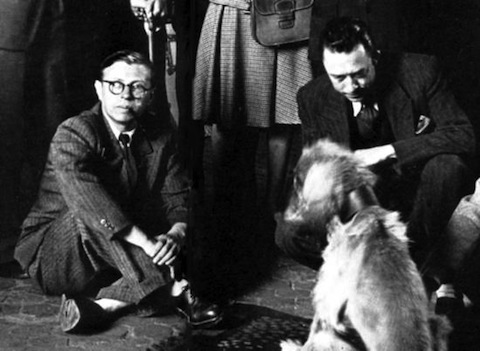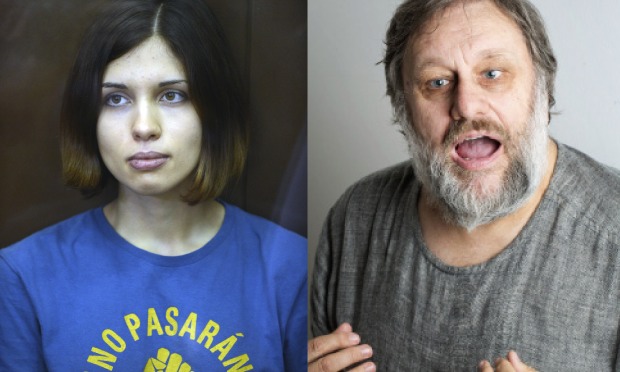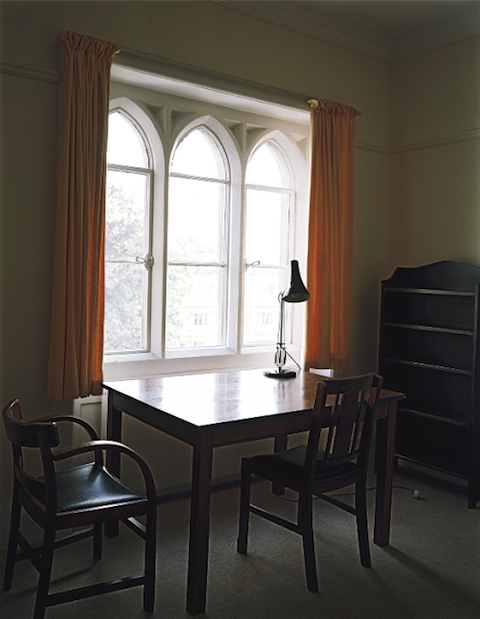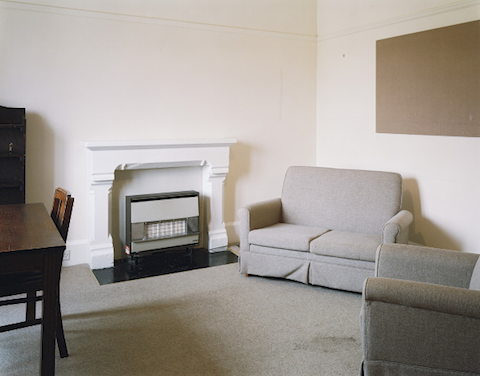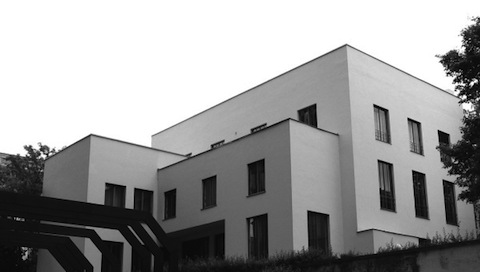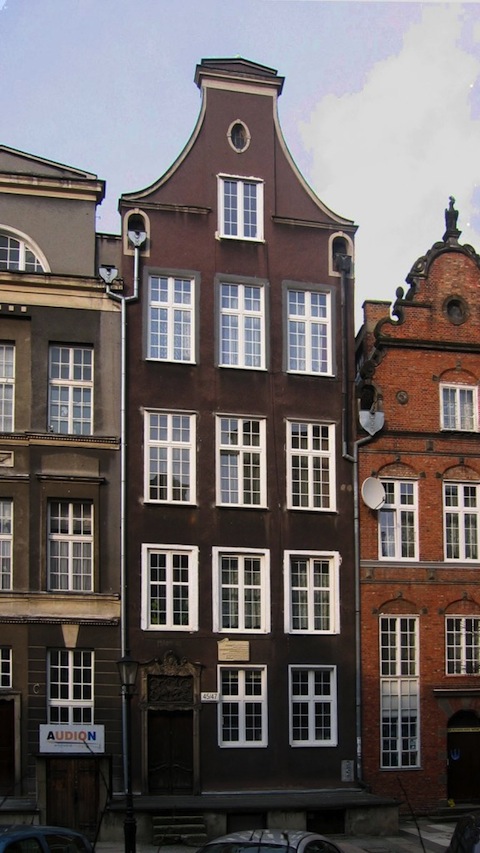Albert Camus—political dissident, journalist, novelist, playwright, and philosopher—was born 100 years ago today in French Algeria. Camus’ modest childhood circumstances, marked by the death of his father in WWI when Camus was an infant, and his devotion to his deaf, illiterate mother, seem to have instilled in him a modesty that shrank from his unavoidable literary fame. In his 1957 Nobel acceptance speech (above, in French with English subtitles), Camus opens with an expression of modesty. After thanking the dignitaries present, he says:
I have not been able to learn of your decision without comparing its repercussions to what I really am. A man almost young, rich only in his doubts and with his work still in progress, accustomed to living in the solitude of work or in the retreats of friendship: how would he not feel a kind of panic at hearing the decree that transports him all of a sudden, alone and reduced to himself, to the centre of a glaring light? And with what feelings could he accept this honour at a time when other writers in Europe, among them the very greatest, are condemned to silence, and even at a time when the country of his birth is going through unending misery?
Camus’ concerns display another defining characteristic: his sense of writing as a political act, which he honed as a journalist for leftist and anti-colonial newspapers, most notably France’s resistance paper Combat, edited by Camus from 1943 to 1947. It was during these war years that Camus produced some of his most well-known work, including his essay The Myth of Sisyphus and novel The Stranger, and struck up a friendship with Jean-Paul Sartre, who also wrote for Combat. The friendship eventually went sour, in part due to Camus’ unwillingness to accept the persecutions and abuses of state power manifested by Communist regimes (Camus had been kicked out of the Communist party years before, in 1937, for refusing its dogmas).
Just as Camus could not place party over people, he would not elevate art to a special status above the political. Says Camus in his Nobel speech above: “I cannot live without my art. But I have never placed it above everything. If, on the other hand, I need it, it is because it cannot be separated from my fellow men… it obliges the artist not to keep himself apart; it subjects him to the most humble and the most universal truth.” Believing strongly in the social duty of the artist, Camus describes his writing as a “commitment” to bear witness to “an insane history.” After outlining the special mission of writing, the “nobility of the writer’s craft,” Camus returns near the end of his speech to modesty and puts the writer “in his proper place” among “his comrades in arms.” For a writer who identified himself solely with his “limits and debts,” Camus left a singularly rich body of work that stands outside of party politics while actively engaging with the political in its most radical form—the duties of people to each other in spite of, or because of, the absurdity of human existence.
Read the full transcript of the translated Nobel Prize Speech here, or below:
In receiving the distinction with which your free Academy has so generously honoured me, my gratitude has been profound, particularly when I consider the extent to which this recompense has surpassed my personal merits. Every man, and for stronger reasons, every artist, wants to be recognized. So do I. But I have not been able to learn of your decision without comparing its repercussions to what I really am. A man almost young, rich only in his doubts and with his work still in progress, accustomed to living in the solitude of work or in the retreats of friendship: how would he not feel a kind of panic at hearing the decree that transports him all of a sudden, alone and reduced to himself, to the centre of a glaring light? And with what feelings could he accept this honour at a time when other writers in Europe, among them the very greatest, are condemned to silence, and even at a time when the country of his birth is going through unending misery?
I felt that shock and inner turmoil. In order to regain peace I have had, in short, to come to terms with a too generous fortune. And since I cannot live up to it by merely resting on my achievement, I have found nothing to support me but what has supported me through all my life, even in the most contrary circumstances: the idea that I have of my art and of the role of the writer. Let me only tell you, in a spirit of gratitude and friendship, as simply as I can, what this idea is.
For myself, I cannot live without my art. But I have never placed it above everything. If, on the other hand, I need it, it is because it cannot be separated from my fellow men, and it allows me to live, such as I am, on one level with them. It is a means of stirring the greatest number of people by offering them a privileged picture of common joys and sufferings. It obliges the artist not to keep himself apart; it subjects him to the most humble and the most universal truth. And often he who has chosen the fate of the artist because he felt himself to be different soon realizes that he can maintain neither his art nor his difference unless he admits that he is like the others. The artist forges himself to the others, midway between the beauty he cannot do without and the community he cannot tear himself away from. That is why true artists scorn nothing: they are obliged to understand rather than to judge. And if they have to take sides in this world, they can perhaps side only with that society in which, according to Nietzsche’s great words, not the judge but the creator will rule, whether he be a worker or an intellectual.
By the same token, the writer’s role is not free from difficult duties. By definition he cannot put himself today in the service of those who make history; he is at the service of those who suffer it. Otherwise, he will be alone and deprived of his art. Not all the armies of tyranny with their millions of men will free him from his isolation, even and particularly if he falls into step with them. But the silence of an unknown prisoner, abandoned to humiliations at the other end of the world, is enough to draw the writer out of his exile, at least whenever, in the midst of the privileges of freedom, he manages not to forget that silence, and to transmit it in order to make it resound by means of his art.
None of us is great enough for such a task. But in all circumstances of life, in obscurity or temporary fame, cast in the irons of tyranny or for a time free to express himself, the writer can win the heart of a living community that will justify him, on the one condition that he will accept to the limit of his abilities the two tasks that constitute the greatness of his craft: the service of truth and the service of liberty. Because his task is to unite the greatest possible number of people, his art must not compromise with lies and servitude which, wherever they rule, breed solitude. Whatever our personal weaknesses may be, the nobility of our craft will always be rooted in two commitments, difficult to maintain: the refusal to lie about what one knows and the resistance to oppression.
For more than twenty years of an insane history, hopelessly lost like all the men of my generation in the convulsions of time, I have been supported by one thing: by the hidden feeling that to write today was an honour because this activity was a commitment – and a commitment not only to write. Specifically, in view of my powers and my state of being, it was a commitment to bear, together with all those who were living through the same history, the misery and the hope we shared. These men, who were born at the beginning of the First World War, who were twenty when Hitler came to power and the first revolutionary trials were beginning, who were then confronted as a completion of their education with the Spanish Civil War, the Second World War, the world of concentration camps, a Europe of torture and prisons – these men must today rear their sons and create their works in a world threatened by nuclear destruction. Nobody, I think, can ask them to be optimists. And I even think that we should understand – without ceasing to fight it – the error of those who in an excess of despair have asserted their right to dishonour and have rushed into the nihilism of the era. But the fact remains that most of us, in my country and in Europe, have refused this nihilism and have engaged upon a quest for legitimacy. They have had to forge for themselves an art of living in times of catastrophe in order to be born a second time and to fight openly against the instinct of death at work in our history.
Each generation doubtless feels called upon to reform the world. Mine knows that it will not reform it, but its task is perhaps even greater. It consists in preventing the world from destroying itself. Heir to a corrupt history, in which are mingled fallen revolutions, technology gone mad, dead gods, and worn-out ideologies, where mediocre powers can destroy all yet no longer know how to convince, where intelligence has debased itself to become the servant of hatred and oppression, this generation starting from its own negations has had to re-establish, both within and without, a little of that which constitutes the dignity of life and death. In a world threatened by disintegration, in which our grand inquisitors run the risk of establishing forever the kingdom of death, it knows that it should, in an insane race against the clock, restore among the nations a peace that is not servitude, reconcile anew labour and culture, and remake with all men the Ark of the Covenant. It is not certain that this generation will ever be able to accomplish this immense task, but already it is rising everywhere in the world to the double challenge of truth and liberty and, if necessary, knows how to die for it without hate. Wherever it is found, it deserves to be saluted and encouraged, particularly where it is sacrificing itself. In any event, certain of your complete approval, it is to this generation that I should like to pass on the honour that you have just given me.
At the same time, after having outlined the nobility of the writer’s craft, I should have put him in his proper place. He has no other claims but those which he shares with his comrades in arms: vulnerable but obstinate, unjust but impassioned for justice, doing his work without shame or pride in view of everybody, not ceasing to be divided between sorrow and beauty, and devoted finally to drawing from his double existence the creations that he obstinately tries to erect in the destructive movement of history. Who after all this can expect from him complete solutions and high morals? Truth is mysterious, elusive, always to be conquered. Liberty is dangerous, as hard to live with as it is elating. We must march toward these two goals, painfully but resolutely, certain in advance of our failings on so long a road. What writer would from now on in good conscience dare set himself up as a preacher of virtue? For myself, I must state once more that I am not of this kind. I have never been able to renounce the light, the pleasure of being, and the freedom in which I grew up. But although this nostalgia explains many of my errors and my faults, it has doubtless helped me toward a better understanding of my craft. It is helping me still to support unquestioningly all those silent men who sustain the life made for them in the world only through memory of the return of brief and free happiness.
Thus reduced to what I really am, to my limits and debts as well as to my difficult creed, I feel freer, in concluding, to comment upon the extent and the generosity of the honour you have just bestowed upon me, freer also to tell you that I would receive it as an homage rendered to all those who, sharing in the same fight, have not received any privilege, but have on the contrary known misery and persecution. It remains for me to thank you from the bottom of my heart and to make before you publicly, as a personal sign of my gratitude, the same and ancient promise of faithfulness which every true artist repeats to himself in silence every day.
Prior to the speech, B. Karlgren, Member of the Royal Academy of Sciences, addressed the French writer: «Mr. Camus – As a student of history and literature, I address you first. I do not have the ambition and the boldness to pronounce judgment on the character or importance of your work – critics more competent than I have already thrown sufficient light on it. But let me assure you that we take profound satisfaction in the fact that we are witnessing the ninth awarding of a Nobel Prize in Literature to a Frenchman. Particularly in our time, with its tendency to direct intellectual attention, admiration, and imitation toward those nations who have – by virtue of their enormous material resources – become protagonists, there remains, nevertheless, in Sweden and elsewhere, a sufficiently large elite that does not forget, but is always conscious of the fact that in Western culture the French spirit has for centuries played a preponderant and leading role and continues to do so. In your writings we find manifested to a high degree the clarity and the lucidity, the penetration and the subtlety, the inimitable art inherent in your literary language, all of which we admire and warmly love. We salute you as a true representative of that wonderful French spirit.
Related Content:
Albert Camus Writes a Friendly Letter to Jean-Paul Sartre Before Their Personal and Philosophical Rift
Albert Camus Talks About Adapting Dostoyevsky for the Theatre, 1959
The Fall by Albert Camus Animated
Josh Jones is a writer and musician based in Durham, NC. Follow him at @jdmagness
